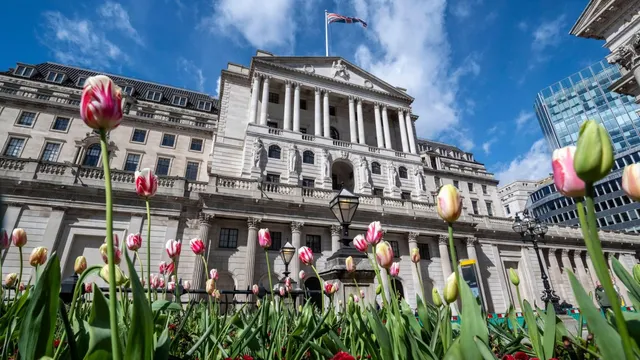
Rising oil prices urge caution from Bank of England due to Middle East conflict
2025-06-17 11:30- Oil prices have increased significantly due to ongoing conflict between Israel and Iran.
- This development raises concerns regarding global economic stability, prompting a cautious response from financial authorities.
- The Times shadow Monetary Policy Committee suggests that the Bank of England should maintain current interest rates to manage these challenges.
Express your sentiment!
Insights
Recently, a notable increase in oil prices was observed, attributed to escalating tensions and conflict between Israel and Iran. As these geopolitical circumstances unfolded, they heightened concerns regarding global economic stability, particularly among central banks. The Bank of England, in response to this situation, faces pressing decisions about interest rates and overall monetary policy direction. Given the precarious environment, the shadow Monetary Policy Committee at the Times advocated for a cautious approach, recommending that the Bank of England hold current interest rates steady. Their caution arises from a belief that drastic changes could negatively impact the economy amid already rising inflation rates related to oil prices. The outcome of such decisions will likely have significant implications for consumers and businesses alike, as any shift in interest rates can alter borrowing costs and spending behaviors. Observers suggest that maintaining stability in rates could provide reassurance to markets and citizens while navigating through turbulent geopolitical waters.
Contexts
The impact of oil price rises on the economy is a multifaceted issue that can have both direct and indirect effects on various sectors. Fluctuations in oil prices can directly influence consumer behavior, corporate profitability, and inflation rates. As oil prices increase, the costs associated with transportation and production services also rise, which can lead to higher prices for goods and services. Consumers may reduce their discretionary spending as they allocate more of their income to cover the increased costs of fuel and heating, which can trigger a slowdown in economic growth. Moreover, industries that rely heavily on oil, such as transportation and manufacturing, may face squeezed profit margins, ultimately affecting employment and investment decisions within these sectors. In addition to the immediate effects on consumers and businesses, rising oil prices can have substantial implications for inflation. Higher oil prices typically lead to an increase in the consumer price index (CPI), as energy costs permeate throughout the economy. Central banks may respond to rising inflation by adjusting interest rates, which can further impact borrowing costs for consumers and businesses alike. If the response to rising oil prices results in higher interest rates, it may dampen investment and consumer spending, contributing to an economic slowdown. Therefore, the relationship between oil prices and inflation is crucial in understanding the broader economic impact of oil price fluctuations. On a global scale, rising oil prices can have varied impacts on different economies. Oil-exporting nations may benefit from increased revenues, leading to economic growth and investment opportunities. In contrast, oil-importing countries face greater challenges, as the increased costs can exacerbate trade deficits and contribute to lower economic growth. The interconnectedness of the global economy means that significant rises in oil prices can lead to a ripple effect, influencing not just national economies, but global supply chains as well. Countries heavily reliant on oil imports may need to implement policies to mitigate the effects, such as increasing energy efficiency or investing in alternative energy sources. In conclusion, the rise in oil prices poses a complex challenge for the economy, with potential short-term and long-term effects on inflation, consumer behavior, and national growth. Policymakers must navigate these challenges carefully, balancing the needs of consumers, businesses, and the broader economic landscape. Understanding the underlying patterns behind oil price movements can assist in developing strategic responses to mitigate negative outcomes, ensuring sustainable economic growth even in the face of rising energy costs.